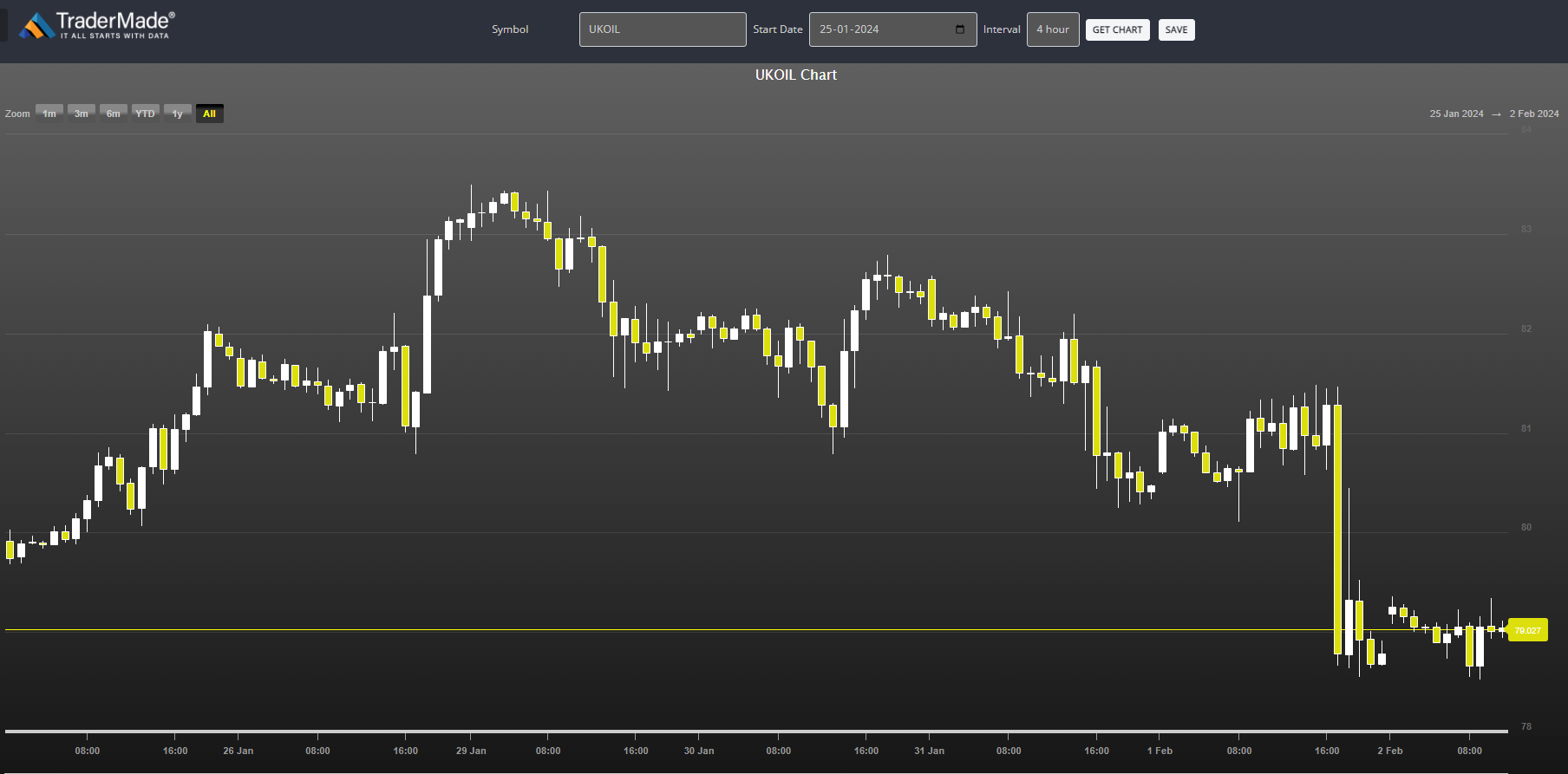
Oil Prices Struggle Despite OPEC+ Boost
London: 2 February 2024 (TraderMade): Oil markets got a fleeting sigh of relief with OPEC+ keeping the taps shut, but dark clouds from China's slowing economy and Middle East tensions threaten to drown out the sunshine. Will prices end the week in the red despite the production cut lifeline? Buckle up for a wild ride through the global oil roller coaster!
Black Gold Blues: Oil Bounces Briefly on OPEC Band-Aid, But China & Conflict Keep Prices Trapped in Downturn.
Key Takeaway
- Oil prices experience a short-lived boost after OPEC+ maintains production cuts and the Fed holds rates.
- Concerns about China's economic slowdown and geopolitical tensions weigh on market sentiment.
- Oil benchmarks are expected to end the week with roughly a 5% decline.
OPEC+ Maintains Production Cuts, But Prices Face Weekly Loss
Despite experiencing a modest increase following the OPEC+ group's decision to maintain their current production policy, oil benchmarks are projected to close the week with losses due to persisting concerns about Chinese demand growth.
Brent crude futures exhibited moderate gains, rising 0.6% to $79.20 per barrel, while US West Texas Intermediate (WTI) crude futures also experienced a similar increase. However, both benchmarks had previously reached higher levels during the week, with Brent approaching $85 per barrel on Monday.
The OPEC+ decision to defer adjustments to current oil production levels until March (confirmed by two internal sources) was met with a positive market response. Analysts anticipate a potential extension of the current 2.2 million barrels per day (bpd) production cuts implemented for the first quarter of 2024.

The Brent Crude chart above shows the price movements from 25 January. We saw a steep decline yesterday, and the price is not picking up after that.
Fed Decision Offers Mixed Signals
Additionally, the US Federal Reserve's decision to maintain interest rates and Chair Jerome Powell's suggestion of potential future decreases bolstered the oil market. Lower interest rates can stimulate economic growth and oil demand.
However, oil prices are still anticipated to end the week down approximately 5%. This decline follows unsubstantiated ceasefire reports between Israel and Hamas, which triggered market volatility and price decreases on Thursday.
China Growth Concerns Cast a Shadow
Further contributing to the bearish sentiment are concerns surrounding China's economic trajectory. The International Monetary Fund (IMF) recently revised its growth forecast for China downward, predicting a slowdown to 4.6% in 2024 and a further decline to around 3.5% by 2028.
Geopolitical Tensions Add to Uncertainty
Geopolitical tensions in the Middle East also create uncertainties for the oil market. Notably, concerns about shipping disruptions persist following threats from the Iran-aligned Houthi group to continue attacks on vessels until a ceasefire is established in the Gaza Strip conflict.
To Summarize
In conclusion, although the OPEC+ decision and the US Federal Reserve's stance offered temporary support, oil prices may conclude the week on a declining trend due to lingering anxieties about Chinese demand growth and ongoing geopolitical issues.



